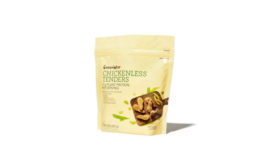Home » Keywords: » private label trends
Items Tagged with 'private label trends'
ARTICLES
Among the major departments that Circana tracks for PLMA Refrigerated was ahead 16% followed by Frozen at 8%.
Read More
5 Questions with Jim Griffin, Executive Vice President at Daymon
Private Brands continue to be a contender in the refrigerated and frozen food space
April 24, 2023
Kroger's Simple Truth Brand Expands Plant-Based Lineup with More Than 50 New Items
Simple Truth will offer more than 75 plant-based foods and beverages by the end of 2020.
October 15, 2020
Navigating private label packaging updates amidst regulatory requirements
A clearly defined, systematic approach will help manufacturers and retailers stay ahead of the changes, minimizing cost to the business and maximizing the positive impact to consumers.
December 20, 2019
Acosta reveals Top 20 CPG predictions for 2020
Some predictions include higher demand for pet products, integration of the in-store and online shopping experience and non-traditional channel growth.
November 18, 2019
Report outlines private label trends for 2020 and beyond
Retailers who want to win in the perimeter must adapt to change in the form of private label development, innovation and customization.
November 14, 2019
PLMA 2019 showcases growth in private label market
PLMA’s annual private label tradeshow gives access to the growing private label market in the United States and Canada, where retailers and wholesalers source for their private label programs.
November 11, 2019
Research reveals complexity of private label shopping expectations
Private brands led manufacturer brands in dollar sales growth across multiple retail outlets for the second consecutive year, up 5.4%.
November 7, 2019
Study: Consumers turn to private brands for better value, not just better price
Nearly 99.9% of shoppers are buying private brands today.
November 5, 2019
Elevate your expertise in refrigerated and frozen foods with unparalleled insights and connections.
Get the latest industry updates tailored your way.
JOIN TODAY!Copyright ©2024. All Rights Reserved BNP Media.
Design, CMS, Hosting & Web Development :: ePublishing







